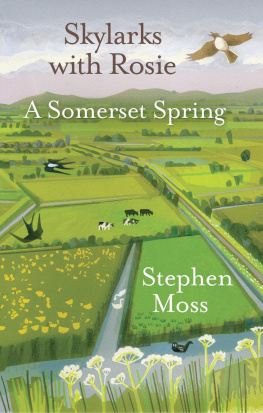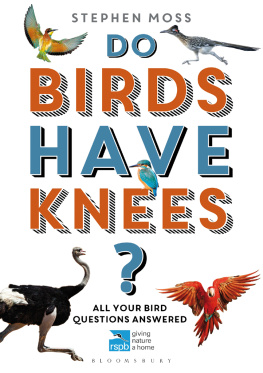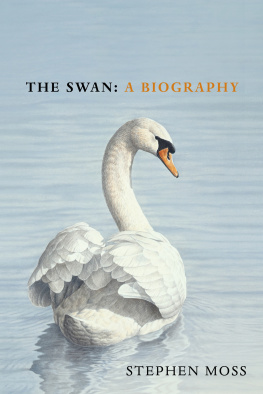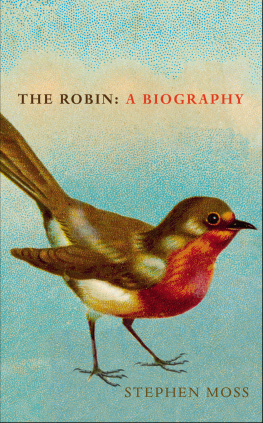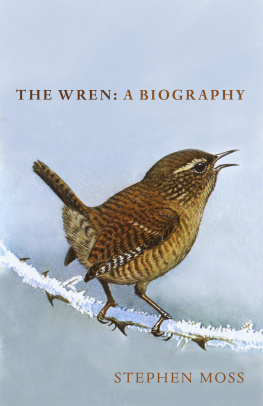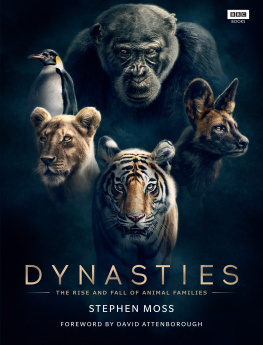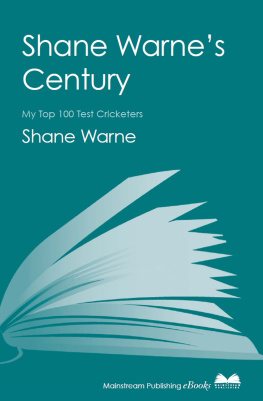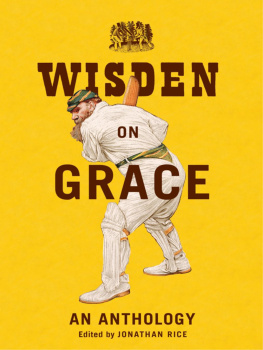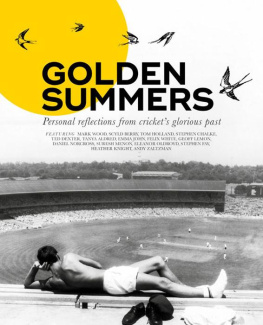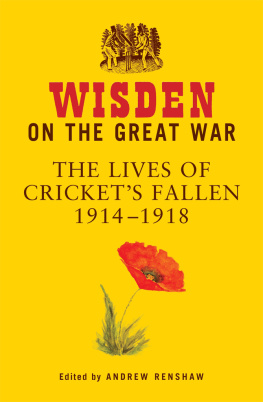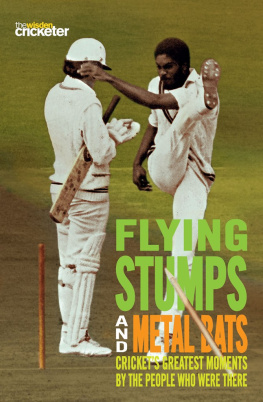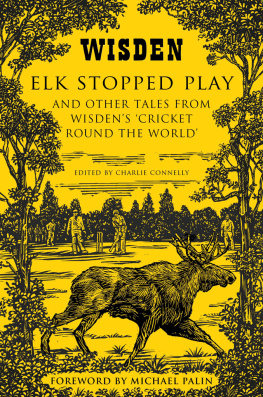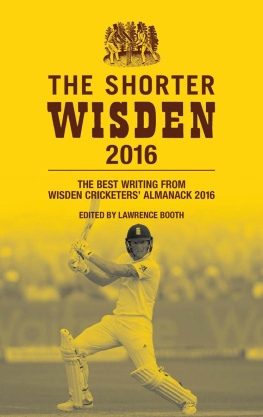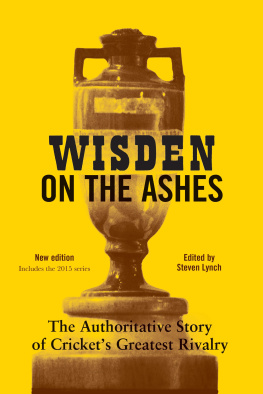WISDEN ANTHOLOGY 1978-2006

CRICKETS AGE OF REVOLUTION
EDITED BY
Stephen Moss
FOREWORD BY
Richie Benaud
Contents
by Richie Benaud
Ah, nostalgia!
MATTHEW ENGEL, Notes by the Editor, 1995
After the rained-out one-day international between England and New Zealand in May, a woman from Chelmsford wrote to the Daily Express to congratulate the BBC for showing an old match from 1979 instead. It was a joy to watch cricket of yesteryear when the crowds were happy, and there was no abuse or rowdiness.
Ah, yes: 1979, the Golden Age of the game the Packer schism, sledging, Lillees aluminium bat, bouncer wars No abuse or rowdiness, indeed! We live in the age of Lara and Warne. A love of cricket goes together with an appreciation of the past. But, for heavens sake, dont overdo it.
Clive Lloyd lifts the World Cup for West Indies in 1975
Kerry Packer and Tony Greig outside the High Court, 1977
Mike Brearley and Greg Chappell, rival captains in 197980
Imran Khan and Sunil Gavaskar, unlikely batting partners, 1987
The drinks interval gets a marketing makeover, World Cup 1996
MCC and women: Wisden Cricket Monthlys cover, October 1998
The ICC leave Lords, 2005
A Hawk-Eye view of cricket
Michael Holding kicks down the stumps in New Zealand, 1980
Dennis Lillee and Javed Miandad almost come to blows, 1981
Shakoor Rana and Mike Gatting get their points across, 1987
Hansie Cronje gives evidence in his match-fixing enquiry, 2000
England leave Guyana in 1981 after Robin Jackman is refused entry
Dennis Amiss wears a prototype batting helmet, 1978
Ian Botham hits out at Headingley, 1981
Mike Atherton and Jack Russell at Johannesburg, 1995
Nasser Hussain and the Wisden Trophy, The Oval, 2000
Andrew Flintoff consoles Brett Lee, Edgbaston, 2005
Derek Randall during the Centenary Test at Melbourne, 1977
Ball of the Century: Shane Warne bowls Mike Gatting, 1993
Matthew Hayden breaks the Test record with 380, Perth, 2003
West Indies score 418 to beat Australia at Antigua, 2003
Kapil Devs fourth successive six, Lords, 1990
Anil Kumble, who took ten wickets in a Test match innings in 1999
V. V. S. Laxman and Rahul Dravid at Kolkata, 2001
South Africa return to international cricket, 1991
Richard Hadlee, New Zealands dominant player, in 1983
Pakistans pace pair: Wasim Akram and Waqar Younis, 1992
Muttiah Muralitharan bowls John Crawley at The Oval, 1998
Andy Flower, Zimbabwes leading batsman, in 1996
Bangladesh celebrate their first Test victory, 2005
David Gower, Allan Border and Desmond Haynes at Lords, 1987
Graham Gooch on his way to 333 against India at Lords, 1990
Sachin Tendulkar square-drives, 2002
Michael Vaughan pictured on the cover of Wisden 2003
Curtly Ambrose and Courtney Walsh at The Oval, 2000
Glenn McGrath catches Michael Vaughan at Adelaide, 2002
Shane Warne, the greatest leg-spinner, 1994
Andrew Flintoff appeals during the 2005 Ashes series
Adam Gilchrist reaches another hundred in unorthodox style, 2001
Steve Waugh reaches his century at The Oval, 2001
Merv Hughes warms up and so does the crowd, 1989
Viv Richards on his way to a century in the 1979 World Cup final
South Africas impossible target at the 1992 World Cup semi-final
Australian celebrations after the tied World Cup semi-final of 1999
Essex, the dominant county team of the period, take the field in 1991
Leicestershire huddle in 1996 aped by the umpires
The last county match at Hastings, 1989
Brian Lara on reaching 501 not out for Warwickshire, 1994
Dickie Bird during his last Test match, 1996
John Arlott and Keith Miller commentate at Lords in 1980
Don Bradman with Shane Warne and Sachin Tendulkar, 1998
Denis Compton, Len Hutton, Keith Miller and Bill Edrich, 1982
Dennis Lillee, Don Bradman and Harold Larwood, 1977
Malcolm Marshall, the great West Indian fast bowler, 1991
Geoff Boycott, Herbert Sutcliffe and Len Hutton, 1977
PHOTOGRAPHIC ACKNOWLEDGMENTS
The publishers wish to thank the suppliers of the following images:
Patrick Eagar pages 8, 22, 71, 89, 115, 196, 214, 230, 274, 296, 335, 438, 515, 547, 594, 669, 675, 697, 736, 757, 770, 780, 803, 829, 911, 1027, 1105, 1158, 1170, 1209, 1218, 1246.
Getty Images pages 43, 145, 149, 177, 325, 355, 380, 420, 447, 452, 476, 612, 645, 789, 862, 971.
Graham Morris pages 156, 1035.
Philip Brown page 718.
Colorsport page 727.
Wisden tells us everything about the game of cricket, always has from the time of the first issue. From the moment I read my first copy during the Australian tour of 1953, Ive always thought that a story lies in every one of the hundreds of pages. One of the very biggest, part of crickets evolution, came in the 1978 edition. This covered the 1977 formation of World Series Cricket, and the ensuing meetings of the International Cricket Conference and the High Court hearing. After 31 days, Mr Justice Slade found on all counts for World Series Cricket and for the three players, Tony Greig, John Snow and Mike Procter. He ruled that the ICC resolutions had been in unreasonable restraint of trade. In a delicious touch of irony, the 1978 Wisden story began opposite an item on page 122 recalling that coloured shirts, which had been commonly worn, had disappeared from cricket in the period 18801895.
World Series Cricket began in 1977, but the seeds that would produce crickets age of revolution had been sown earlier. In 1976, Channel Nine had offered the Australian Board of Control $1,500,000 for three years television coverage of Australian cricket; the Board, though, accepted a $200,000 offer for three years from the Australian Broadcasting Commission quite a difference by way of income for grass-roots cricket. No one, other than the people concerned on the Board and those from Channel Nine, had any inkling this had happened.
By chance, however, this coincided with meetings of aggrieved and extremely disgruntled Australian cricketers who had been trying for four years, without the slightest success, to improve their payments from the Board. One of the players meetings had been with Bob Hawke, a cricket-lover and astute politician who had advised the players that under no circumstances in their discussions with the Board should they indicate they were thinking along the lines of forming a union. It should only be noted as a Players Association.
One of the more significant happenings had occurred in 1975 when Ian Chappell was captain of the Australian team that travelled to England via Canada, for the inaugural World Cup. Chappell, who was both international cricketer and professional journalist, had advised the Australian Cricket Board he would be writing articles for newspapers whilst on tour. He received a letter informing him that this was not possible and he was not, under any circumstances, to have cricket articles published during the tour. Both Chappell and I were members of the Australian Journalists Association which in May 1975 wrote to Sir Donald Bradman expressing concern that Chappell and Ashley Mallett, also a professional journalist, appeared to be bound by restrictive Cricket Board legislation that affected their livelihoods.
Sir Donald was sufficiently concerned to make enquiries in several areas. As a result, he was left in no doubt; if the Australian cricket authorities challenged either the Journalists Association or the players, Chappell and Mallett, the Board would certainly lose the case because they were


